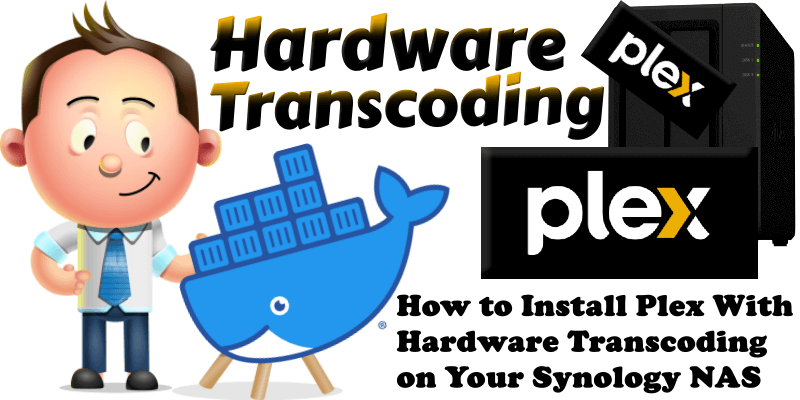
Plex is a one stop destination to stream movies, tv shows, sports & music. Plex gives you one place to find and access all the media that matters to you. From personal media on your own server, to podcasts, web shows, and news, to streaming music, you can enjoy it all in one app, on any device. Hardware transcoding makes media streaming from your NAS faster and more efficient. In this step by step guide I will show you how to install Plex with Hardware Transcoding on your Synology NAS using Docker & Portainer.
This guide works perfectly with the latest Plex HW 1.43.0 release.
STEP 1
Please Support My work by Making a Donation.
STEP 2
Install Portainer using my step by step guide. If you already have Portainer installed on your Synology NAS, skip this STEP. Attention: Make sure you have installed the latest Portainer version.
STEP 3
Use the link below to check if your Synology NAS model supports Hardware Transcoding. If you don’t find your model in the list below, then it means your NAS does not support Hardware Transcoding. In this case, you can Install Plex on your Synology NAS without Hardware Transcoding.
STEP 4
Create or Log in to your Plex account. Claim your PLEX code from the link below. You will need this Plex code later at STEP 7. Follow the instructions in the image below.
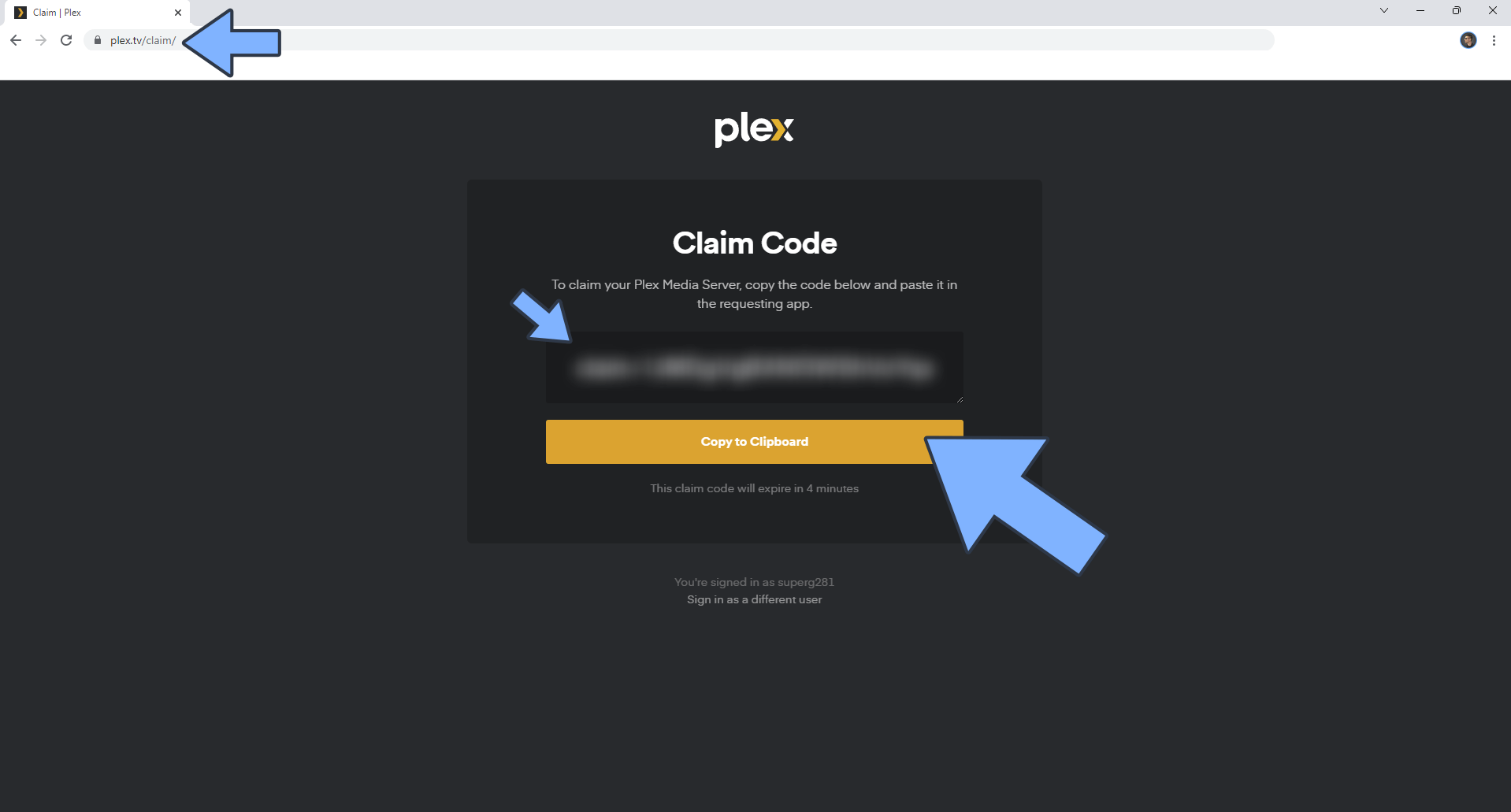
STEP 5
Go to File Station and open the docker folder. Inside the docker folder, create one new folder and name it plexhw. Follow the instructions in the image below.
Note: Be careful to enter only lowercase, not uppercase letters.
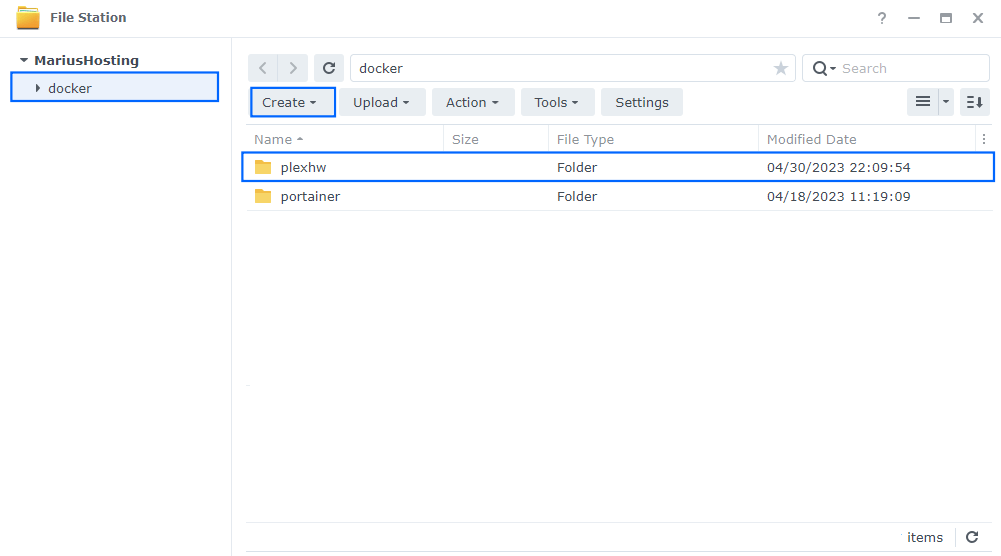
STEP 6
Log into Portainer using your username and password. On the left sidebar in Portainer, click on Home then Live connect. Follow the instructions in the image below.

On the left sidebar in Portainer, click on Stacks then + Add stack. Follow the instructions in the image below.

STEP 7
In the Name field type in plexhw. Follow the instructions in the image below.
services:
plex:
image: ghcr.io/linuxserver/plex:latest
container_name: PlexHW
hostname: plex
network_mode: host
mem_limit: 4g
cpu_shares: 1024
security_opt:
- no-new-privileges:true
healthcheck:
test: wget --no-verbose --tries=1 --spider http://localhost:32400/web
volumes:
- /volume1/docker/plexhw:/config:rw
- /volume1/movies/media:/movies:ro
devices:
- /dev/dri/renderD128:/dev/dri/renderD128
- /dev/dri/card0:/dev/dri/card0
environment:
TZ: Europe/Bucharest
PUID: 1026
PGID: 100
VERSION: public
PLEX_CLAIM: YourPLEXClaimCode # STEP 4
restart: on-failure:5
Note: Before you paste the code above in the Web editor area below, change /volume1/movies/media with your personal path to movies (where your movies are located). For example I have used my personal movies path folder /volume1/movies/media Change it according to your preferences.
Note: Before you paste the code above in the Web editor area below, change the value for TZ. (Select your current Time Zone from this list.)
Note: Before you paste the code above in the Web editor area below, change the value numbers for PUID and PGID with your own values. (Follow my step by step guide on how to do this.) 1026 is my personal PUID value and 100 is my personal PGID value. You have to type in your own values.
Note: Before you paste the code above in the Web editor area below, change the value for PLEX_CLAIM and type in your own Plex Claim code that you have previously generated at STEP 4.
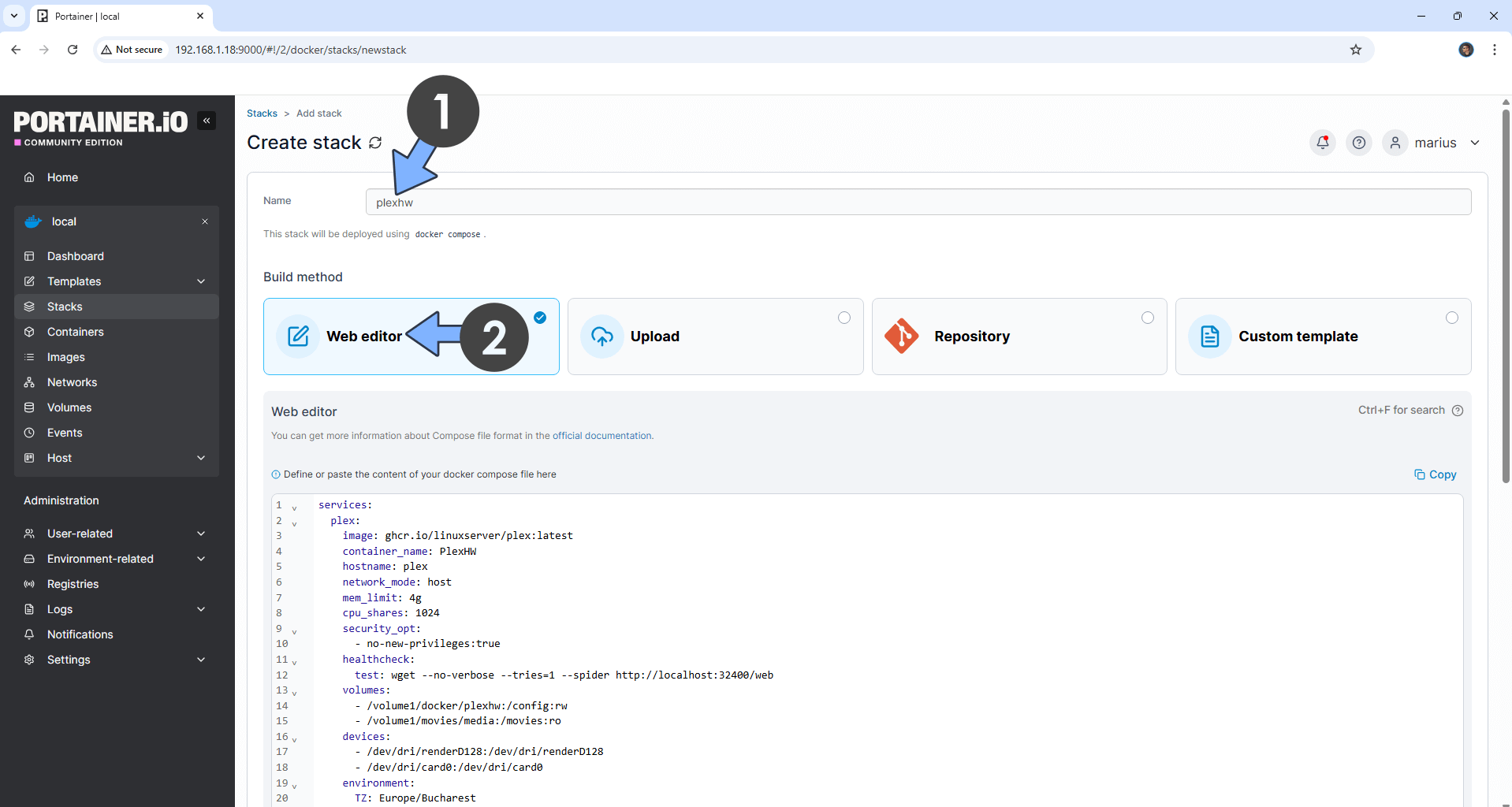
STEP 8
Scroll down on the page until you see a button named Deploy the stack. Click on it. Follow the instructions in the image below. The installation process can take up to a few minutes. It will depend on your Internet speed connection.
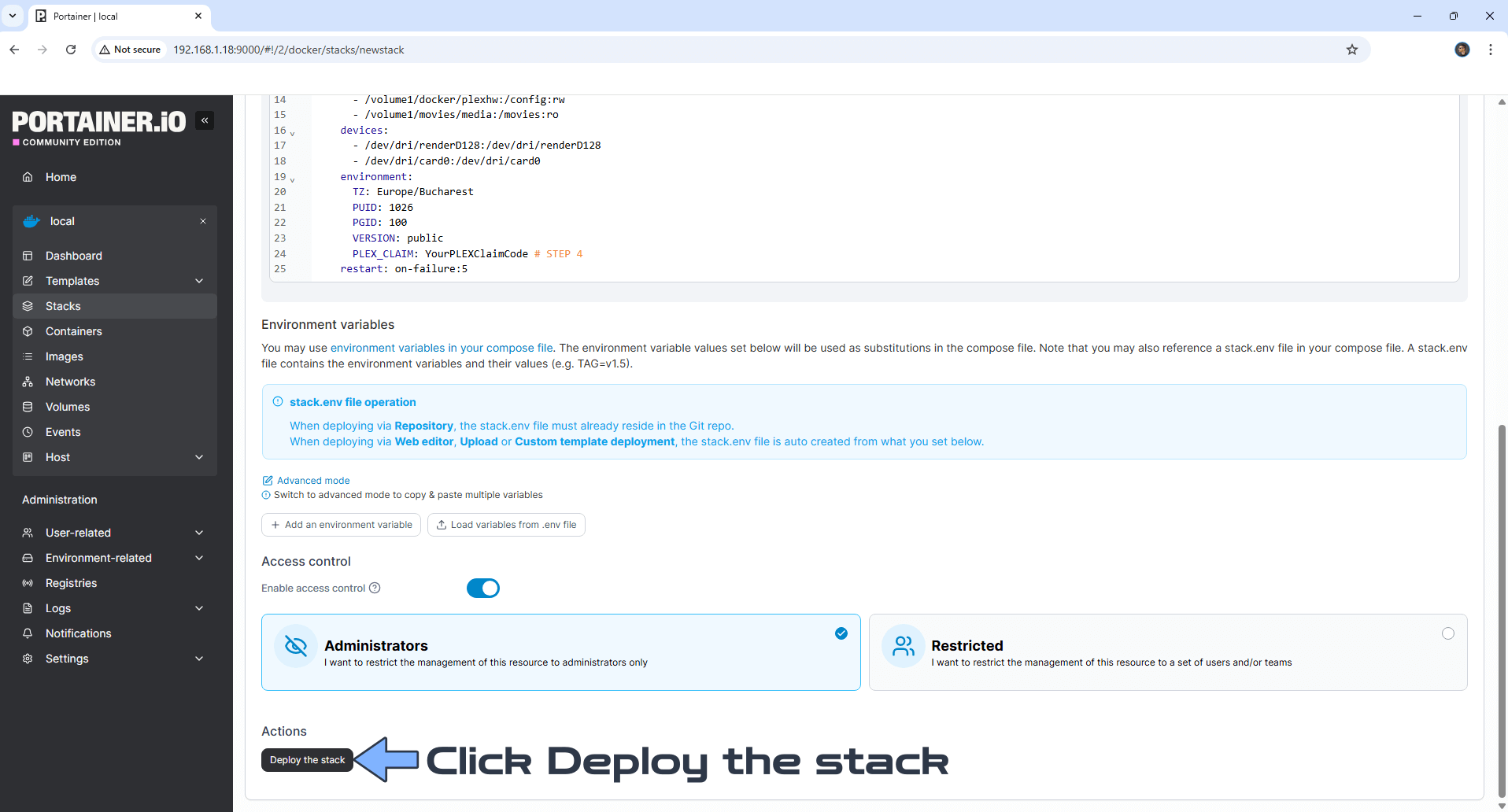
STEP 9
If everything goes right, you will see the following message at the top right of your screen: “Success Stack successfully deployed“.

STEP 10
🟢Please Support My work by Making a Donation. Almost 99,9% of the people that install something using my guides forget to support my work, or just ignore STEP 1. I’ve been very honest about this aspect of my work since the beginning: I don’t run any ADS, I don’t require subscriptions, paid or otherwise, I don’t collect IPs, emails, and I don’t have any referral links from Amazon or other merchants. I also don’t have any POP-UPs or COOKIES. I have repeatedly been told over the years how much I have contributed to the community. It’s something I love doing and have been honest about my passion since the beginning. But I also Need The Community to Support me Back to be able to continue doing this work.
STEP 11
The installation process can take up to a few seconds/minutes. It will depend on your Internet speed connection. Now open your browser and type in http://Synology-ip-address:32400/web Click Sign in. Follow the instructions in the image below.
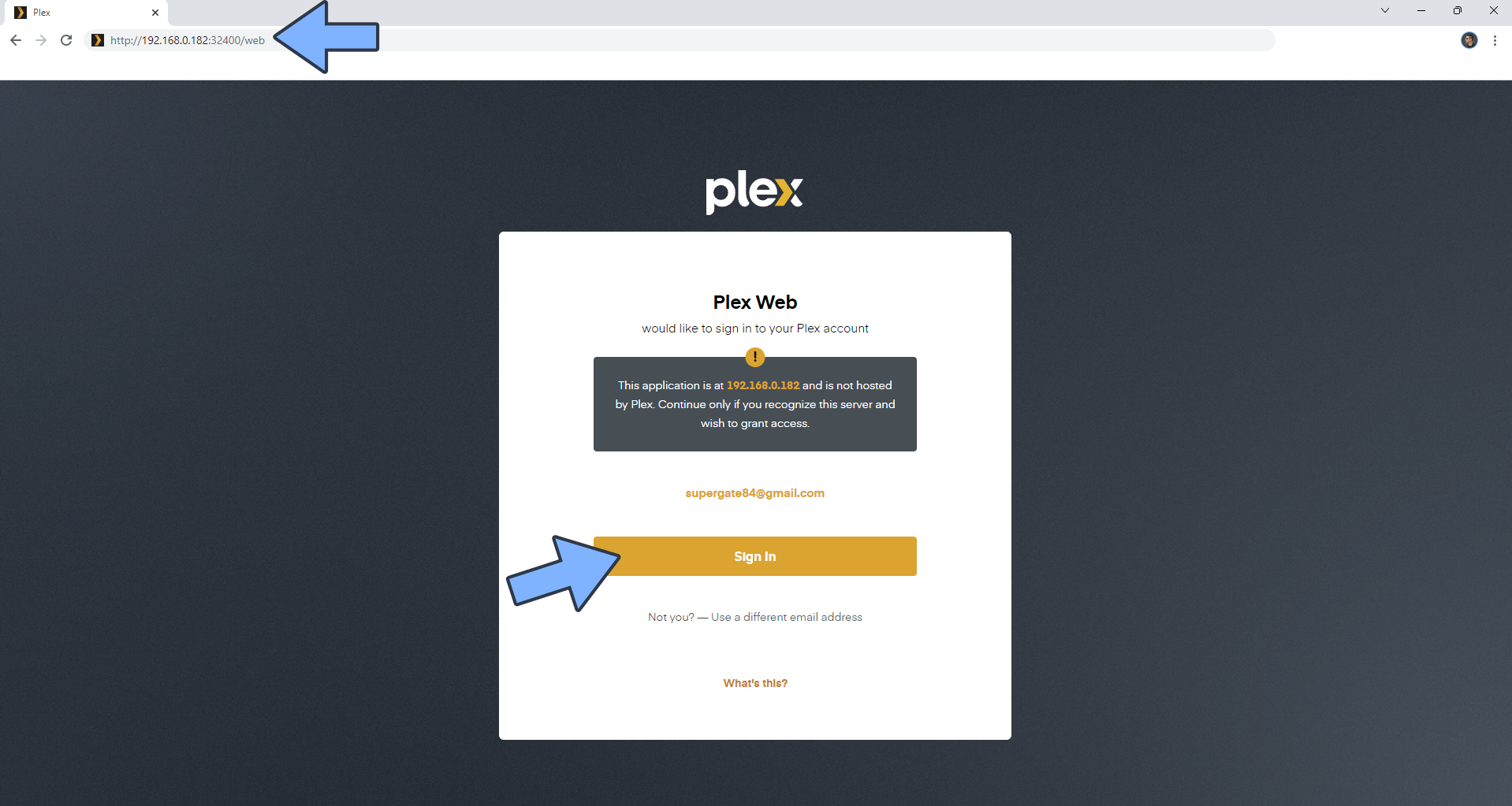
STEP 12
⚠️Warning: If the page is stuck on loading, just refresh the page. Click Got it!. Follow the instructions in the image below.
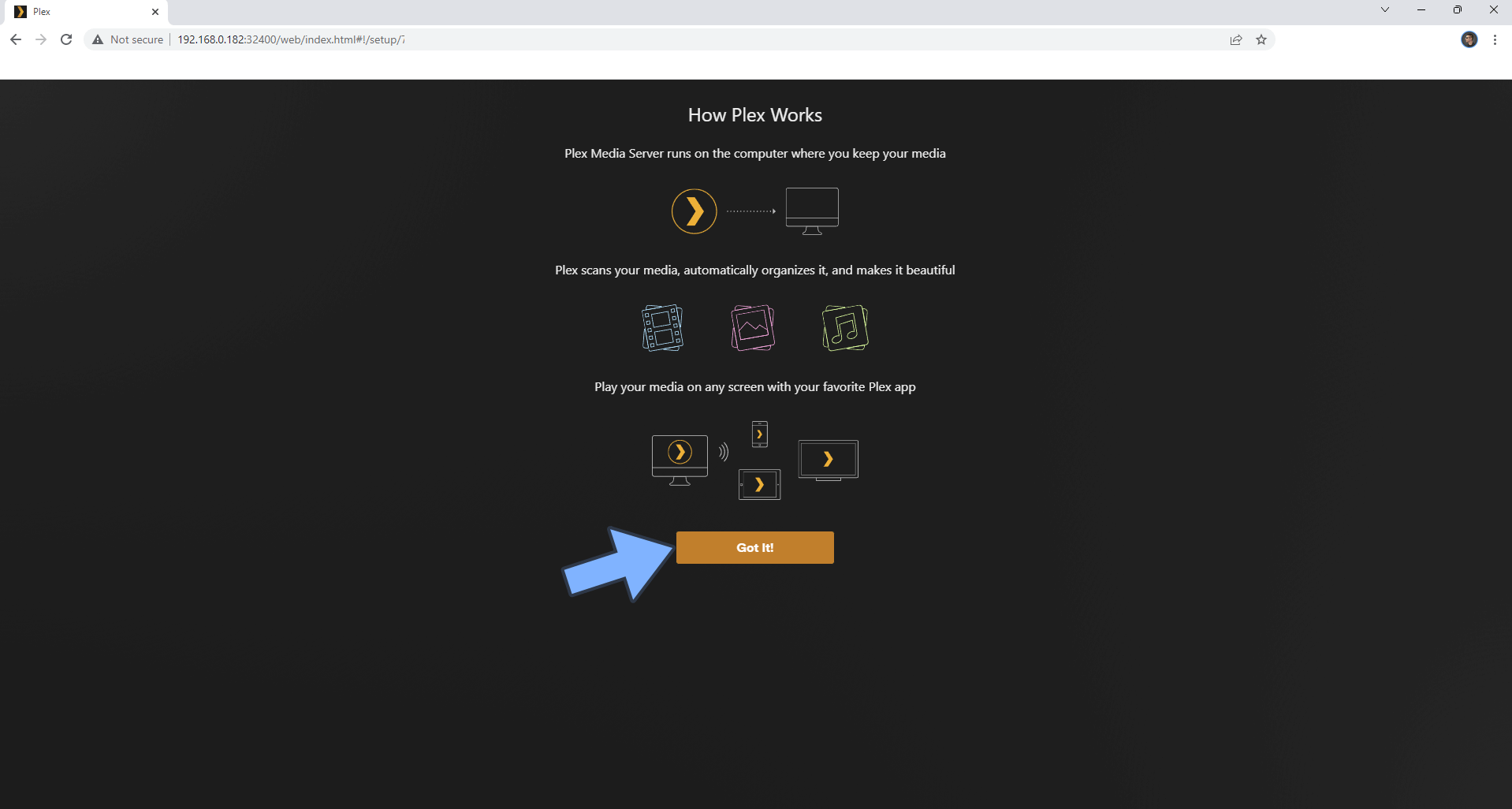
STEP 13
Add a Plex Pass or click close if you have one. ⚠️Warning: Plex Pass it’s mandatory for running Hardware Transcoding. Follow the instructions in the image below.
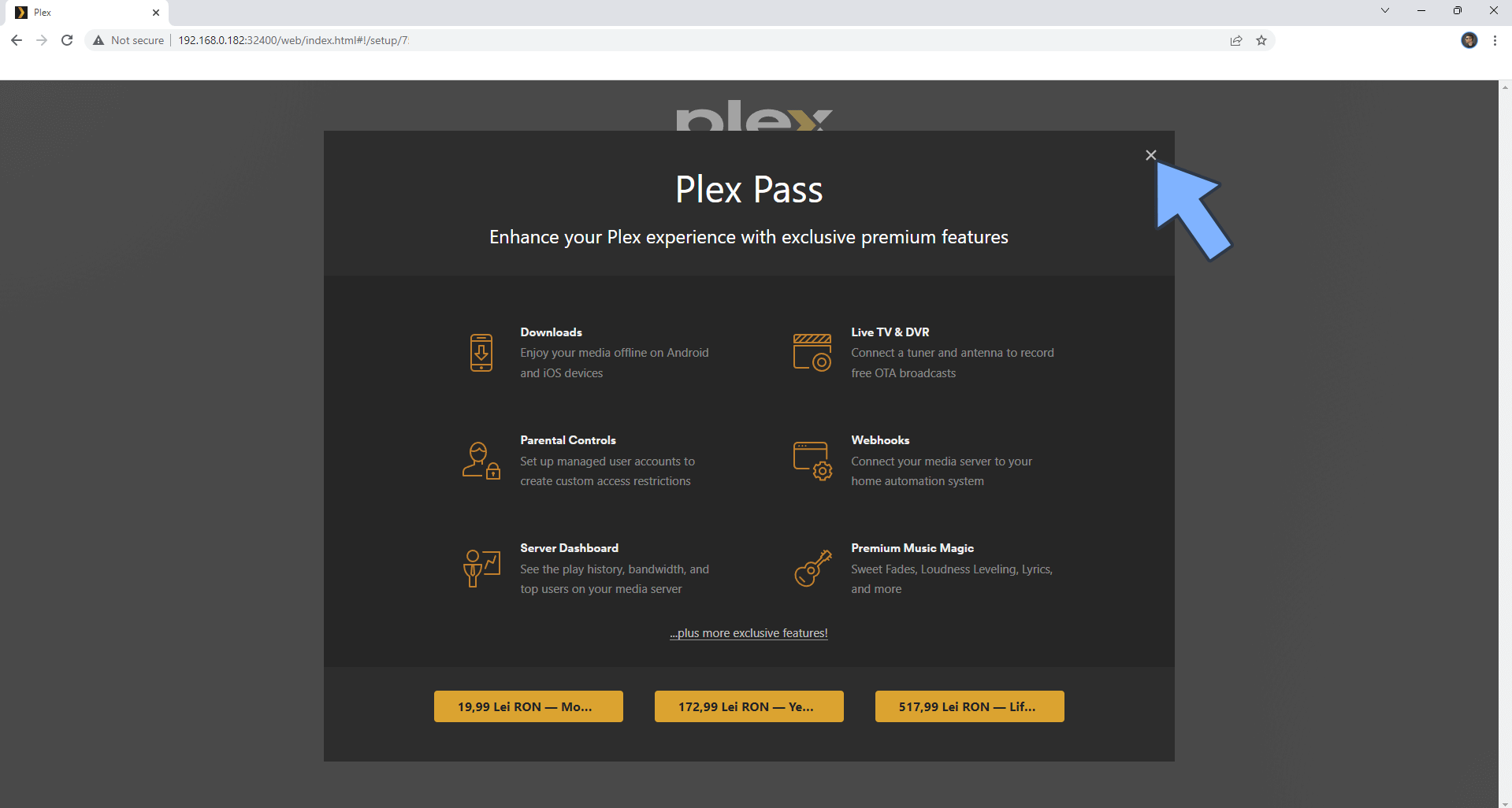
STEP 14
Give your server a friendly name then click Next. Follow the instructions in the image below.
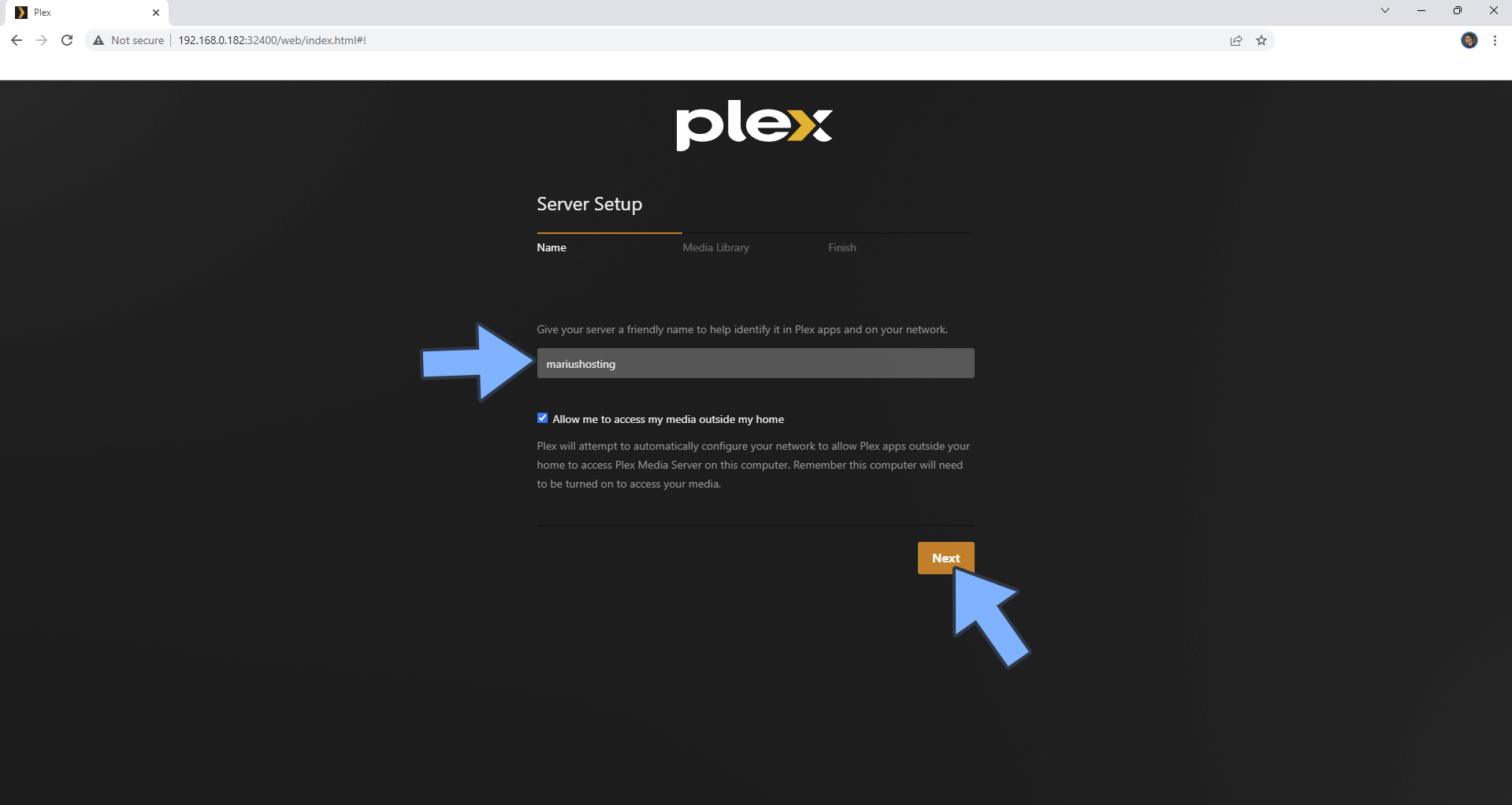
STEP 15
Click Add Library. Follow the instructions in the image below.
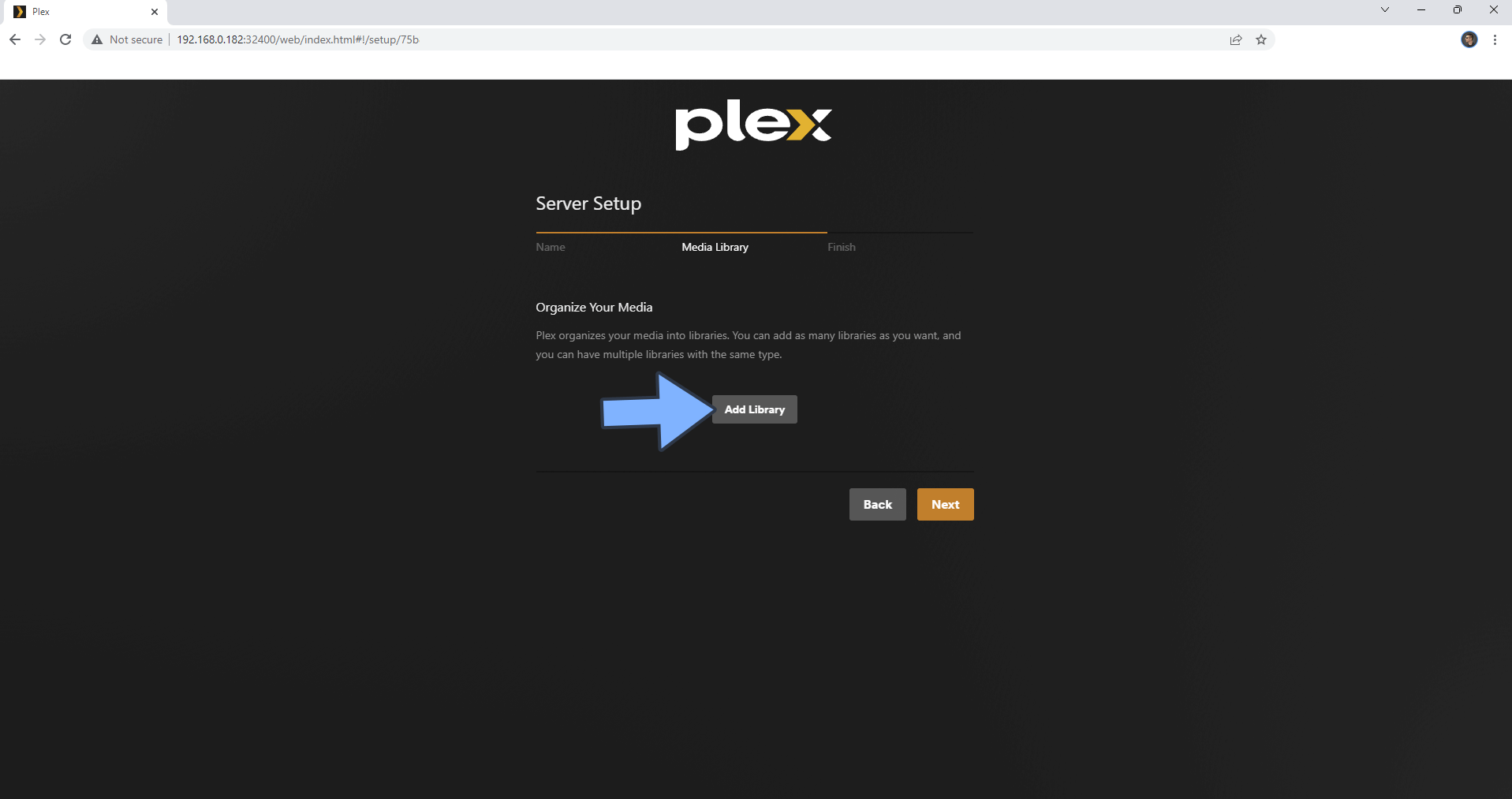
STEP 16
Click Movies then Next. Follow the instructions in the image below.
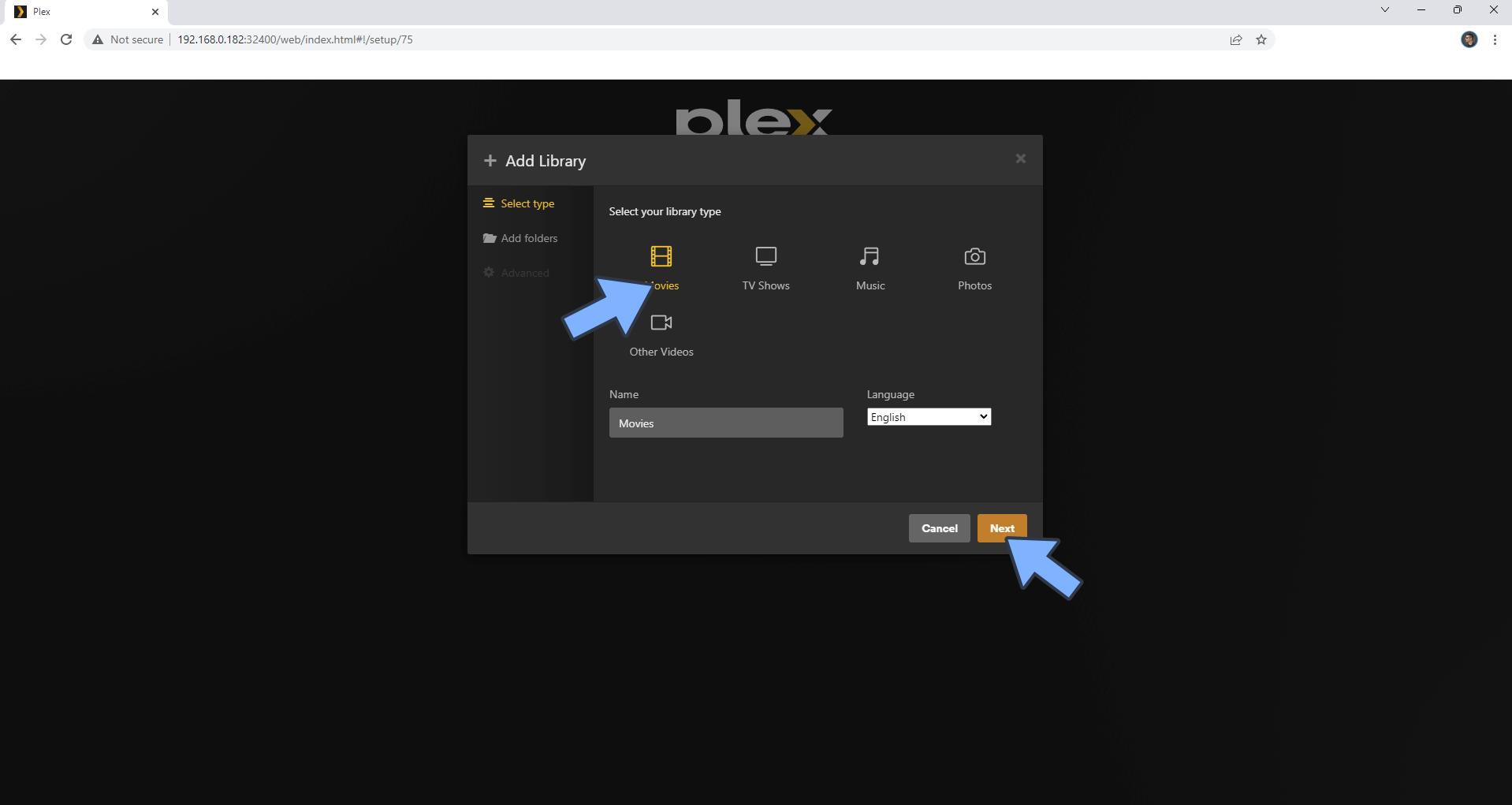
STEP 17
Click Browse For Media Folder. Follow the instructions in the image below.
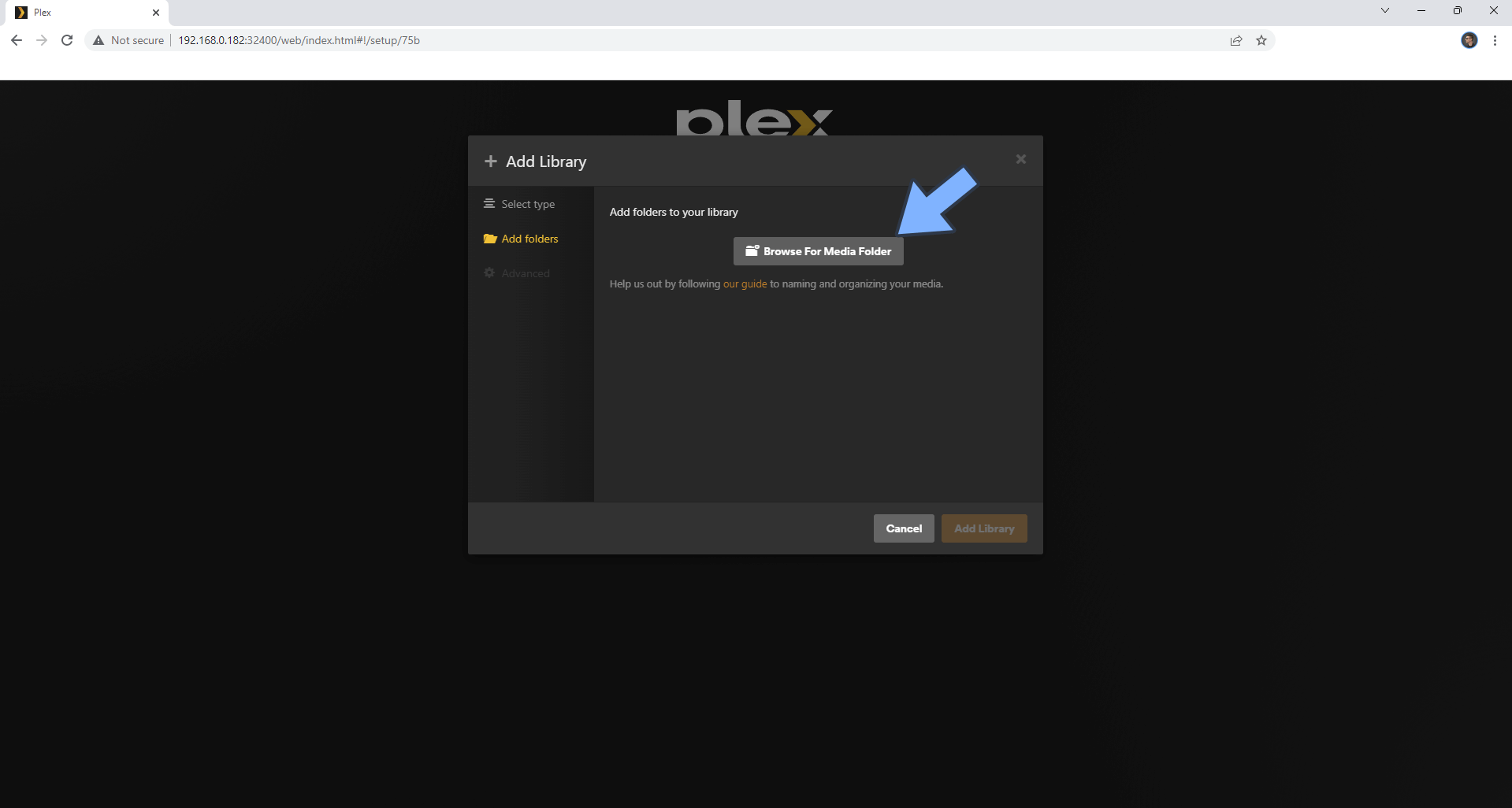
STEP 18
From the folder choose movies then click Add. follow the instructions in the image below.
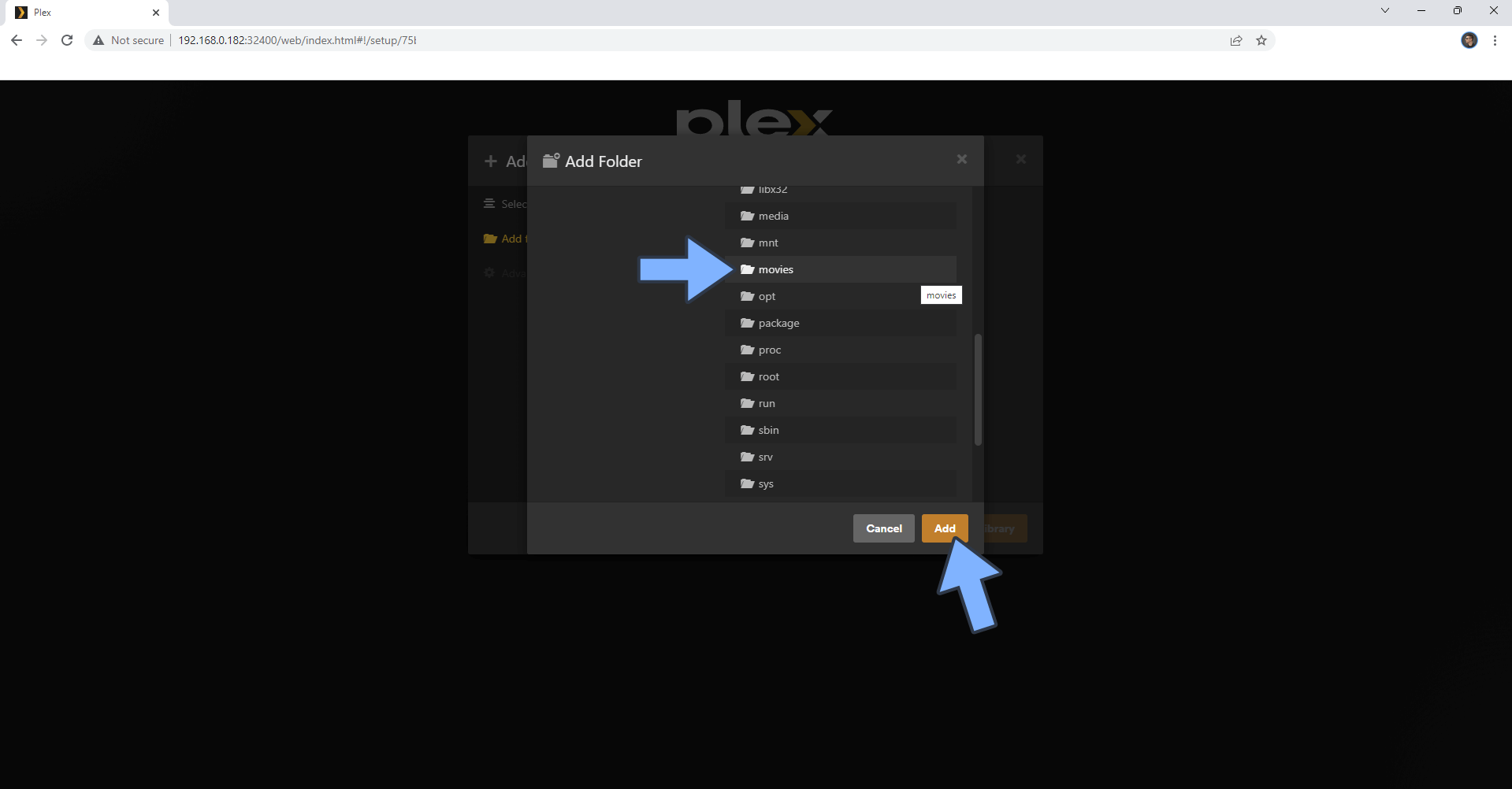
STEP 19
Click Add. Follow the instructions in the image below.
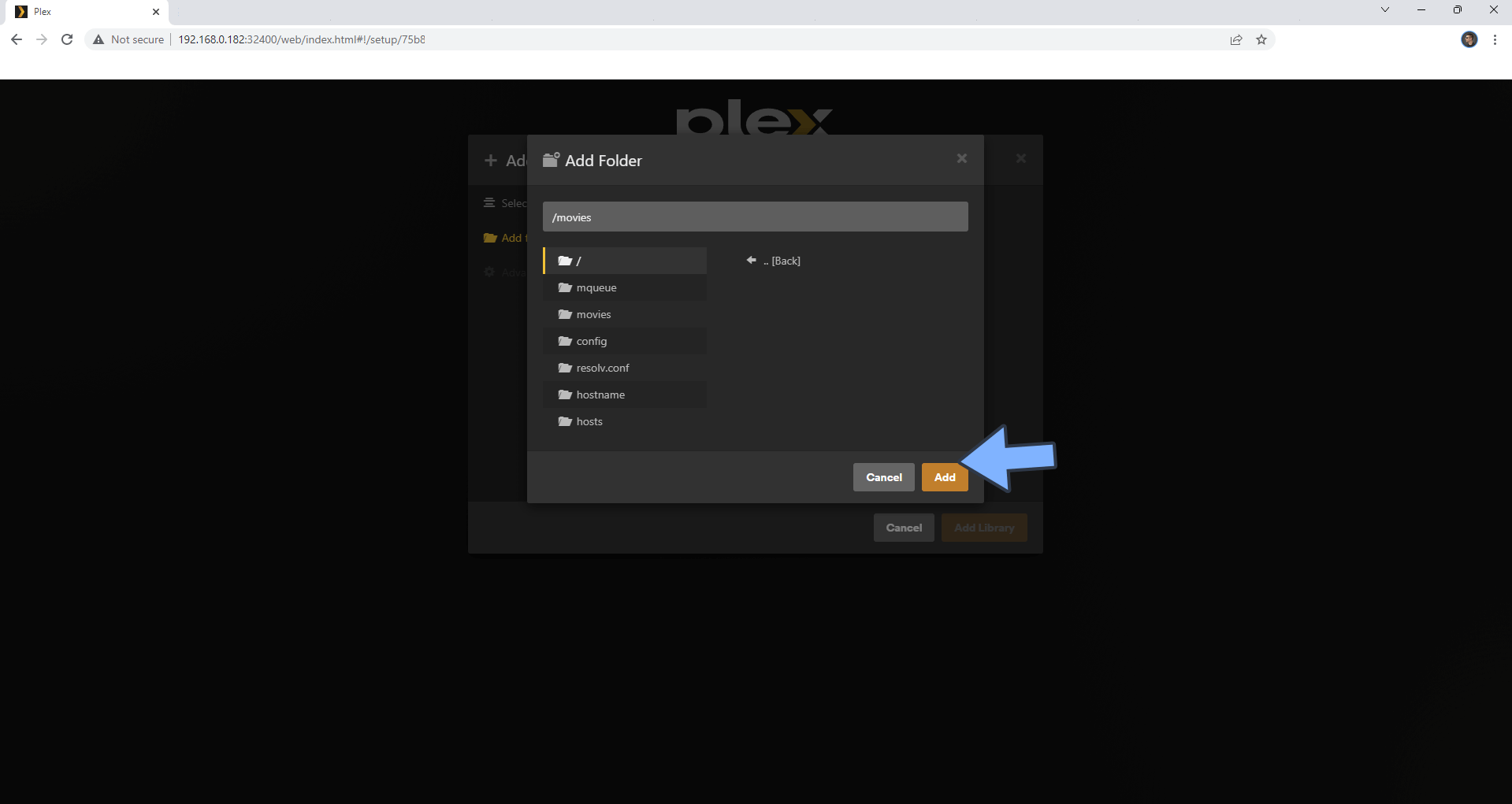
STEP 20
Click Add Library. Follow the instructions in the image below.
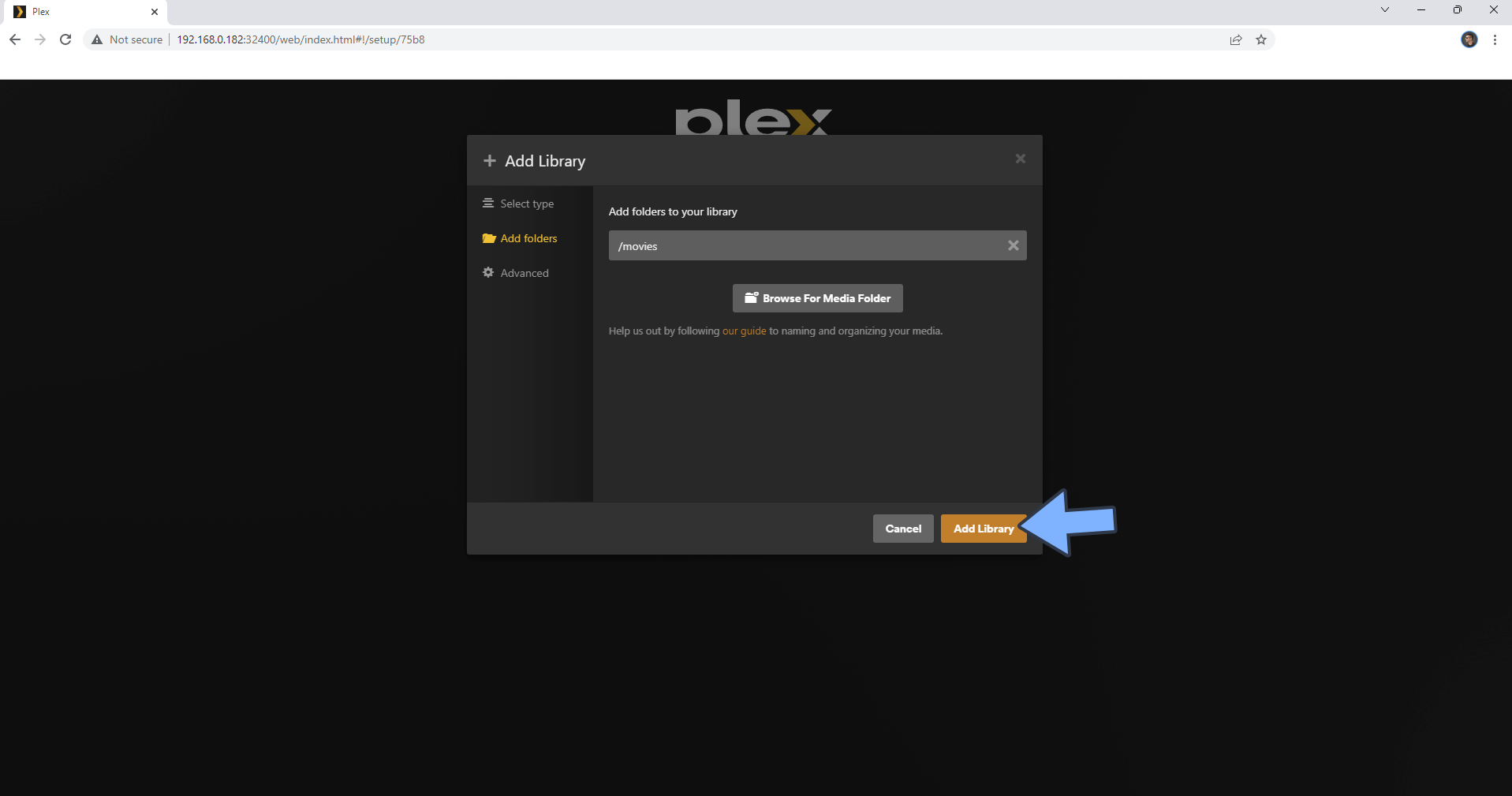
STEP 21
Click Next. Follow the instructions in the image below.
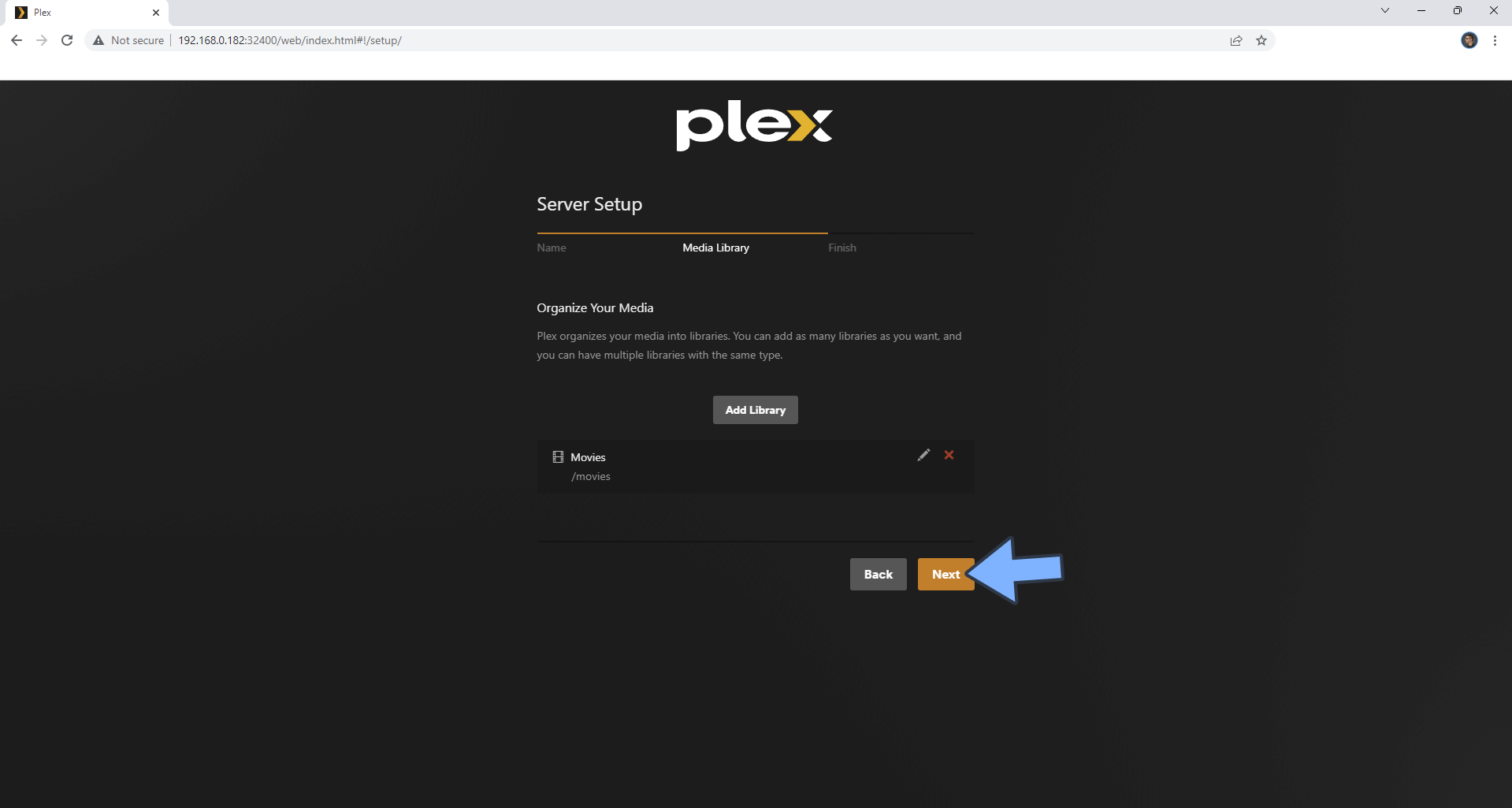
STEP 22
Click Done. Follow the instructions in the image below.
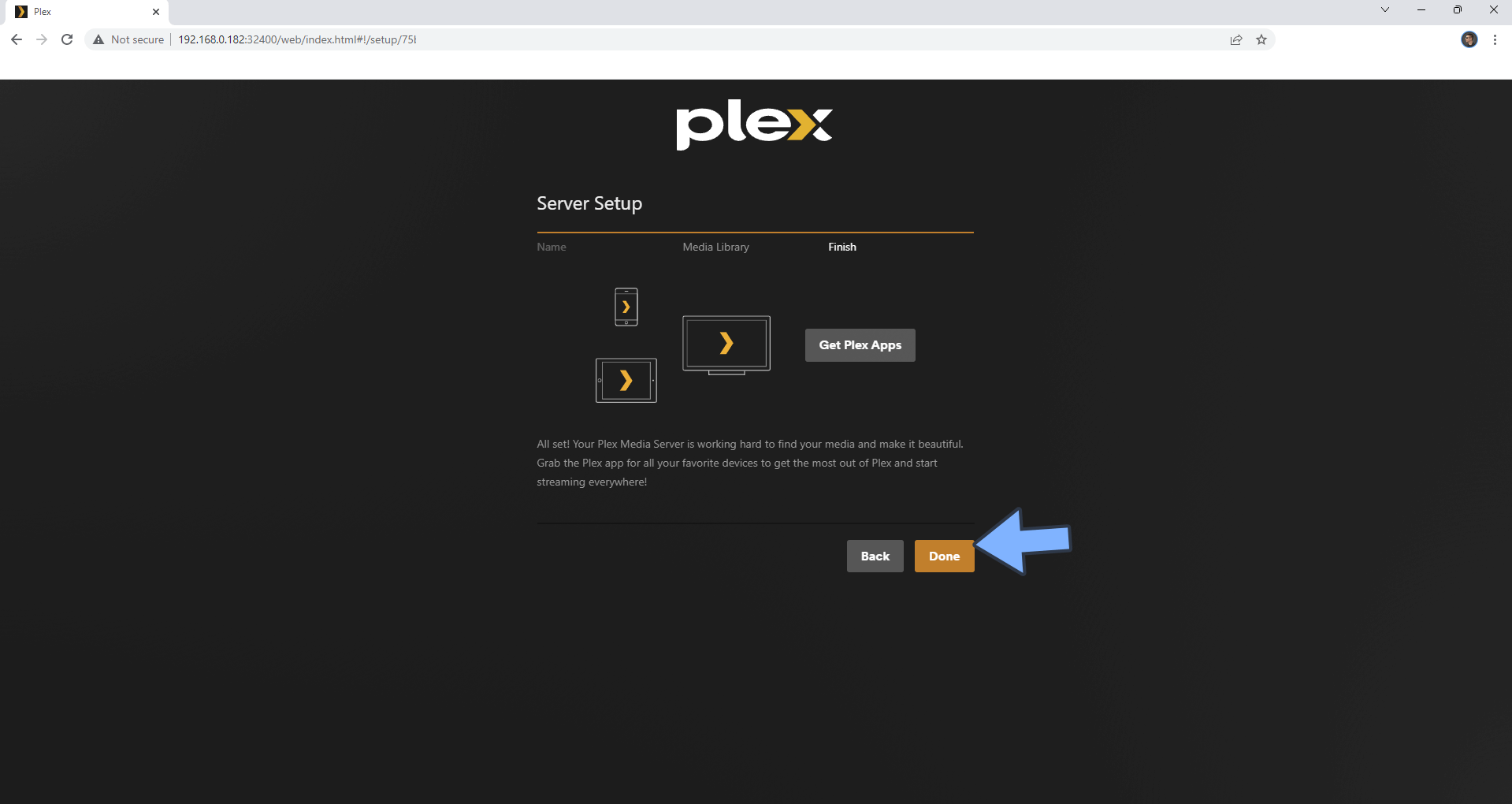
STEP 23
Once you are logged in your Plex account, at the top right of the page click on your profile then Account Settings. On the left sidebar click Transcoder. Follow the instructions in the image below.
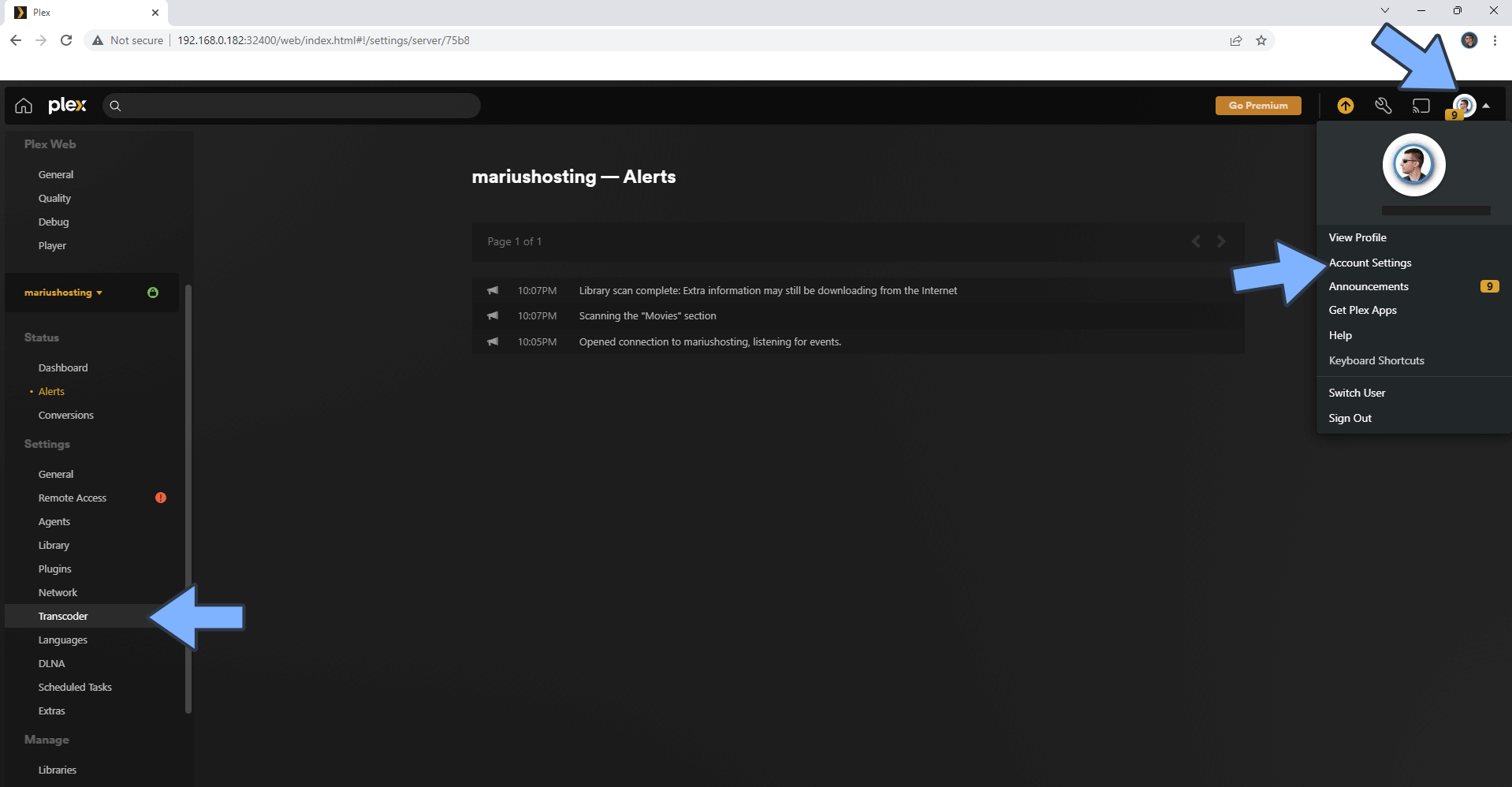
STEP 24
From the Background transcoding dropdown menu, choose Super fast, then select the following options:
- Enable HDR tone mapping.
- Use hardware acceleration when available.
- Use hardware-accelerated video encoding.
Click Save Changes. Follow the instructions in the image below. ⚠️Warning: Plex Pass it’s mandatory for running Hardware Transcoding.
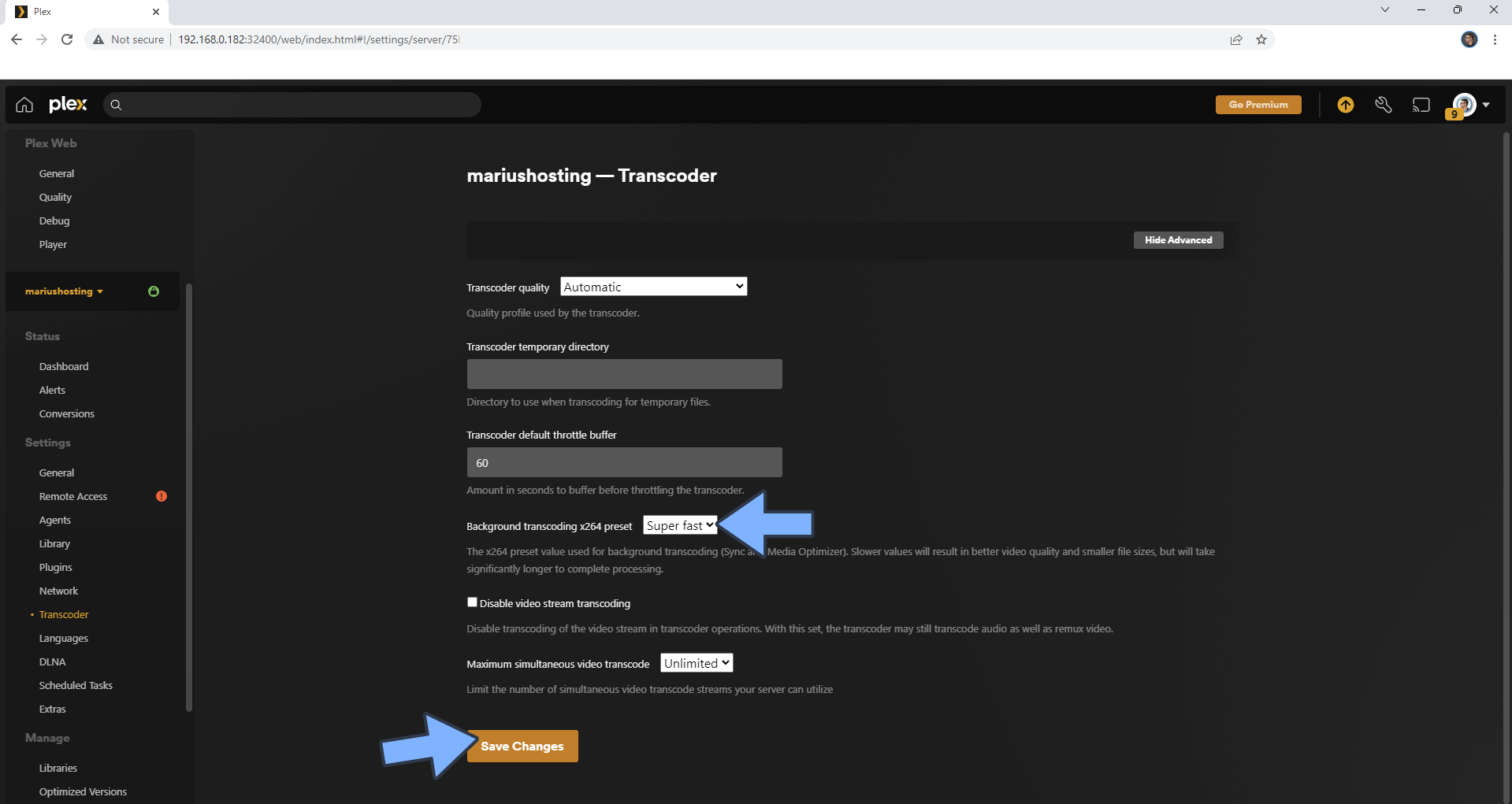
Enjoy Plex with Hardware Transcoding!
Note: If you want to run the Plex container over an HTTPS connection, check my guide on How to Run Docker Containers Over HTTPS. In order to make Plex Hardware Transcoding work over https, it’s also mandatory to set up WebSocket.
If you experience some permissions issues like not being able to see your movies inside your movie folder, follow the STEPS below to fix it.
STEP 1A
Go to Control Panel / Shared Folder / Select the shared folder where your movies are located, then click the Edit tab. Follow the instructions in the image below.
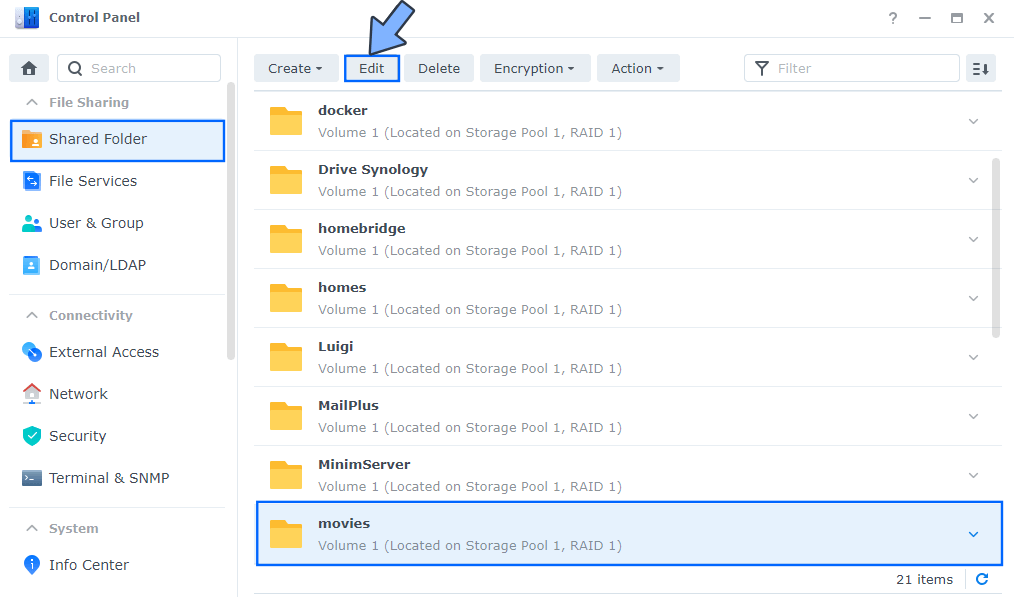
STEP 2B
After you click the Edit tab at STEP 1A, click on the Permissions tab. From the dropdown menu choose “Local groups“. Select users then check the Read/Write permission. Click Save. Follow the instructions in the image below.
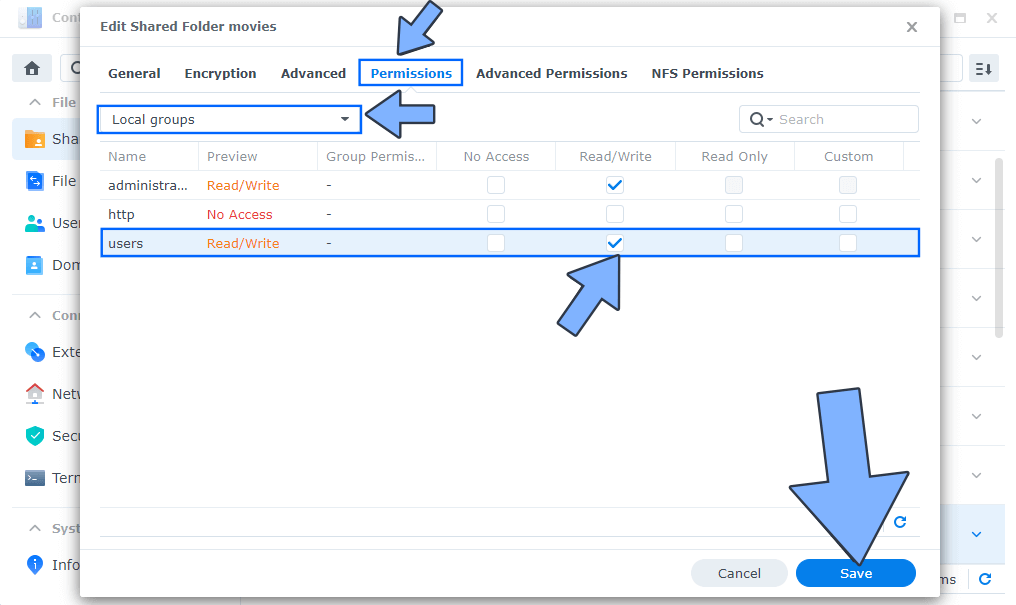
Note: Can I run Docker on my Synology NAS? See the supported models.
Note: Find out how to update the Plex Hardware Transcoding container with the latest image.
Note: How to Free Disk Space on Your NAS if You Run Docker.
Note: Instead of the synology.me DDNS you can also use your own domain name.
Note: How to Schedule Start & Stop For Docker Containers.
Note: How to Activate Email Notifications.
Note: How to Add Access Control Profile on Your NAS.
Note: How to Change Docker Containers Restart Policy.
Note: How to Use Docker Containers With VPN.
Note: Convert Docker Run Into Docker Compose.
Note: How to Clean Docker.
Note: How to Clean Docker Automatically.
Note: Best Practices When Using Docker and DDNS.
Note: Some Docker Containers Need WebSocket.
Note: Find out the Best NAS Models For Docker.
Note: Activate Gmail SMTP For Docker Containers.
This post was updated on Thursday / January 15th, 2026 at 12:26 AM
